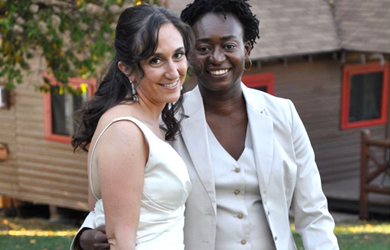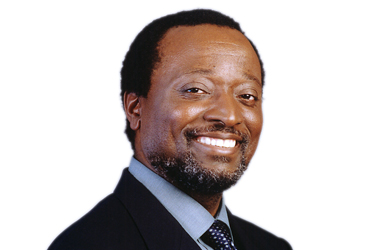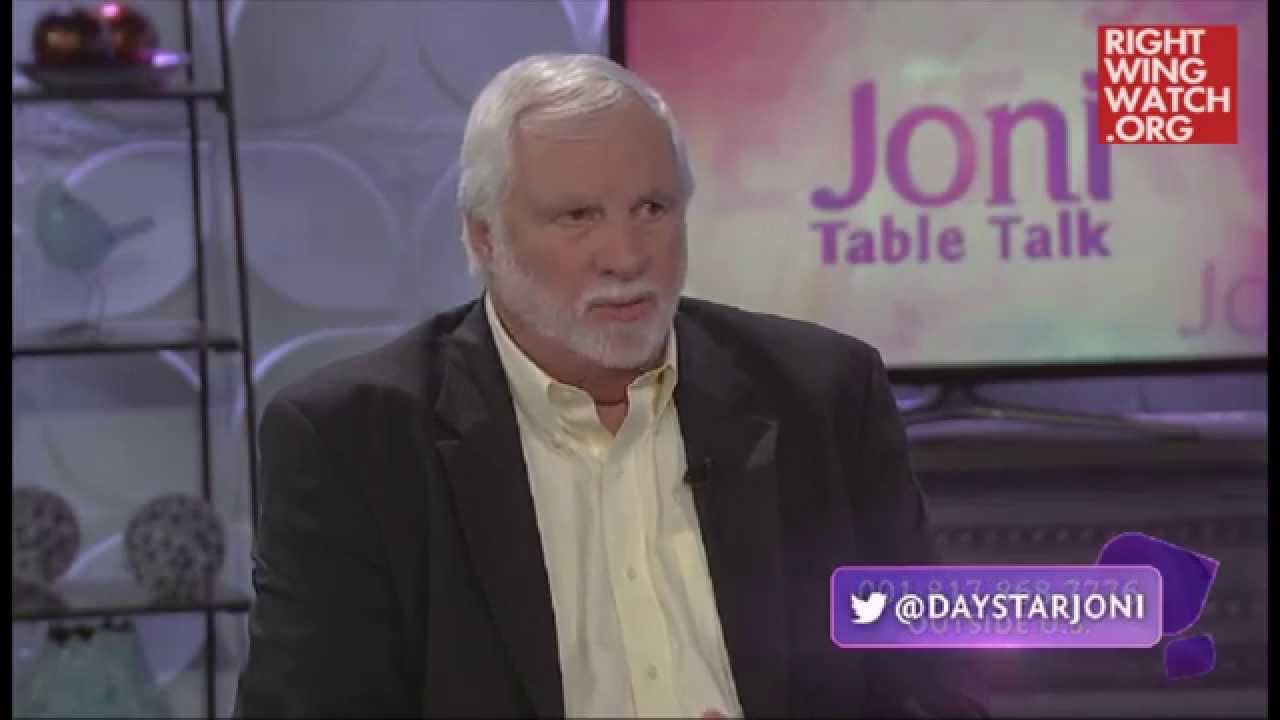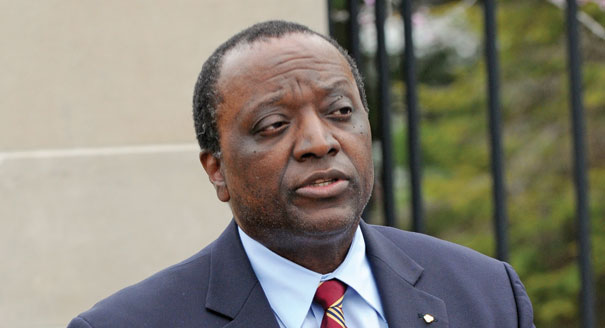Alan Keyes, the Religious Right icon who thinks that marriage equality will lead to Nazi-style tyranny and “the murder of the masses,” took to WorldNetDaily today with a lengthy column on the dangers of gay marriage. In fact, the column is so long that readers are redirected to Keyes’ personal website to read the second half of it.
According to Keyes, a Supreme Court decision in favor of marriage equality “could very well be as momentous as the Dred Scott decision in the 19th century, and just as fraught with potentially fatal implications for the future Liberty and Union of the people of the United States.”
After arguing that same-sex marriages are unconstitutional because such relationships will not lead to procreation and therefore contribute nothing to society, Keyes writes that there is no right to marry. In fact, same-sex marriage, according to Keyes, represents a “humanly fabricated right” that undermines “the unalienable right essential for the natural conception and perpetuation of humanity itself.”
All in all, Keyes concludes that a pro-gay-rights ruling from the Supreme Court will be a reason for a new revolution and civil war.
“This would be an attack on the people of the United States more grievous than that which led the first generation of Americans to declare their independence from Great Britain,” he writes. “If even a significant minority of Americans continue in their attachment to the unalienable right of liberty (as opposed to the licentious freedom that has, in some quarters usurped that name) this attack is likely to produce the separation and dissolution of the United States, for like humanity itself the United States is inconceivable apart from respect for God-endowed unalienable right.”
Over the past several years, I’ve written quite a few articles on the subject of the so-called “right” asserted in respect of “gay marriage. So it is only after much thought that I venture to say that the Supreme Court’s decisions could very well be as momentous as the Dred Scott decision in the 19th century, and just as fraught with potentially fatal implications for the future Liberty and Union of the people of the United States. Many Americans feel that this is so. But when it comes to constitutional law, our feelings cannot be the crux of the matter. Rather we must rely, as the young Abraham Lincoln once said, on “Reason, cold, calculating, unimpassioned reason.”
…
This observation is not only directly relevant to any Constitutional judgment, it is, by the plain language of the Constitution itself, unmistakably conclusive. For the 9th Amendment to the U.S. Constitution plainly states that “The enumeration in the Constitution of certain rights shall not be construed to deny or disparage others retained by the people.” This language may or may not apply to certain rights under human law (like, for example, the “right” to own slaves in Virginia at the time the Constitution was adopted) but it certainly applies to any and all “unalienable” rights, since they are an aspect of natural law without which the “human” in “human law” would have no distinctive significance.
The way in which this bears upon the issue of so-called “homosexual marriage” is plainly obvious. Whatever else it may or may not be, homosexuality is not an activity inseparable from the concept of humanity itself. On the other hand, marriage between a man and a woman (especially in the true and natural sense of the union of their identities in the child conceived by their commingled information) is not only necessary for the existence of particular human individuals, it is also and especially necessary for preserving the existence of humanity as such.
In this respect, marriage is not a matter of freedom, but of obligation. It goes beyond the tie between particular men and women to encompass the tie between the existence of humanity as a whole and the activity of each and every human being actually capable of procreation. This intersection of the particular and general good is precisely the sphere that calls for the sovereign to exercise the power of civil government. By nature individuals are inclined instinctively to care for themselves and their loved ones. But to care for the general good of all is one of the defining elements of sovereignty. True justice does so with proper regard for each individual’s God endowed responsibility and capacity for right action, but never acts without regard for the common good that each and all are obliged to respect and serve.
This is the main reason the civil institution of marriage exists in the first place. These days people pretend that serving the good of the whole (.e.g, environmental stewardship) and respecting the good of each individual is an either/or proposition. But as endowed by the Creator, the marriage right is the paradigmatic example of just action that serves the whole while care for each individual as a distinctive and particular whole.
But in respect of the premise of unalienable rights, the Constitution makes it plain that this mutual service to humanity takes precedence over subsequent determinations of right in human law.
Whatever this means for the practice of homosexuality without reference to marriage, it certainly means that no humanly fabricated right can be allowed to deny or disparage the unalienable right essential for the natural conception and perpetuation of humanity itself. Such denigration of antecedent unalienable right would not only be unconstitutional, it would explicitly contravene the aim (to secure unalienable rights) for which all governments are instituted in the first place.
This would be an attack on the people of the United States more grievous than that which led the first generation of Americans to declare their independence from Great Britain. If even a significant minority of Americans continue in their attachment to the unalienable right of liberty (as opposed to the licentious freedom that has, in some quarters usurped that name) this attack is likely to produce the separation and dissolution of the United States, for like humanity itself the United States is inconceivable apart from respect for God-endowed unalienable right.








